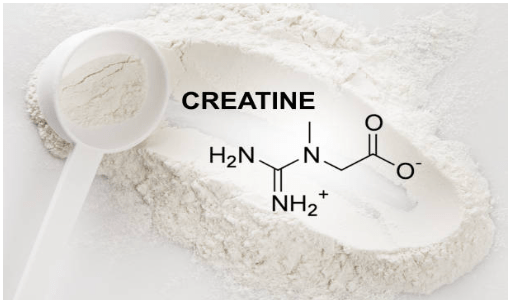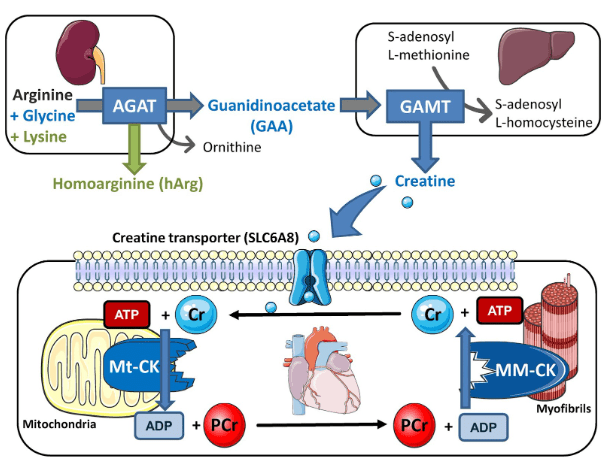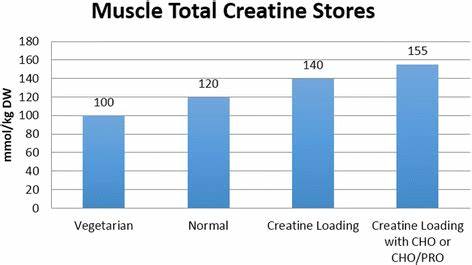What Is Creatine?
What Is Creatine? Creatine was first recognized in 1832 when Michel Eugène Chevreul detached it from the basified water concentrate of skeletal muscle. He later named the solidified encourage after the Greek word for meat, κρέας (kreas). In 1928, creatine was displayed to exist in balance with creatinine.

Concentrations during the 1920s showed that utilization of a lot of creatine didn’t bring about its discharge. This outcome highlighted the capacity of the body to store creatine, which thus recommended its utilization as a dietary supplement.
Table of Contents
| Let’s start, guys, with some basic information about creatine.
What are creatine’s primary advantages? Do athletes need to take pills containing Creatine? |
|---|
What is creatine?
A naturally occurring substance, creatine, is found in meat and fish. It is also produced by the body in the liver, kidneys, and pancreas. It transforms into creatine phosphate or phosphocreatine and is stored in the muscles, where it is used as an energy source. Phosphocreatine is a source of ATP, a vital energy carrier inside the human body, during intense focus and short-duration exercises like lifting heavy objects or running.
Creatine is the top game execution supplement accessible. However, regardless of its examination-supported benefits, specific individuals stay away from creatine since they are concerned it’s terrible for their well-being.
Some cases it causes weight gain, squeezing, and issues with processing, the liver, or the kidneys. Yet, many investigations support its security and viability.

What are creatine’s primary advantages?
The essential advantage of creatine is an improvement in strength and power yield during obstruction workouts. Creatine is well-informed for this reason, and the impacts are very remarkable for enhancement. At the point when utilized related to obstruction workout, creatine may humbly increment lean mass. It has likewise been tried for impacts on the anaerobic running limit in many examinations, the consequences of which are fairly blended; however, by and large, we recommend a little improvement in execution.
In spite of the fact that creatine has been explored undeniably less for mental execution than the actual execution, it might have benefits in certain specific situations. Creatine seems to decrease mental weakness in situations, for example, requesting mental action and rest deprivation. Creatine may likewise work on working memory, however possible just for individuals with sub-optimal creatine levels, like vegans and more established adults. More exploration is required there and on other mental measures before creatine can be supposed to be compelling.
Do athletes need to take pills containing Creatine?
Many athletes utilize creatine pills. The International Olympic Committee, professional sports organizations, and the National Collegiate Athletic Association all approve of the supplement (NCAA).
Although most research has been done on men, benefits have been found in both men and women. According to several studies, women who take creatine supplements may have a different level of strength or muscular growth during exercise than men.
Sprinters, weight lifters, and athletes who compete in team sports may find Creatine valuable if they need quick bursts of speed or improved physical strength.
While not all athletes will benefit from using Creatine, evidence suggests that it generally won’t harm if taken as prescribed.
Although an older case study suggested that Creatine might worsen kidney disorders in patients, Creatine doesn’t impact kidney function in healthy individuals.

Athletic execution
Most human examinations have occurred in research facilities, not in individuals playing sports. Primer investigations show that creatine supplements further develop strength and fit bulk during extreme focus, brief term works out, for example, weight training. In these examinations, the positive outcomes were seen chiefly in youngsters around 20.
Analysts need to figure out how creatine supplementation further develops execution. However, it might permit the body to utilize fuel all the more effectively during activity and increment muscle creation. More exploration is required.
Creatine doesn’t further develop execution in practices that require perseverance, such as running, or in practice that isn’t rehashed, even though study results are blended.
Creatine isn’t restricted by the Public University Athletic Affiliation (NCAA) or the Worldwide Olympic Panel; however, it is disputable to involve it in athletic execution. The NCAA precludes its part schools from giving creatine and other muscle-building enhancements to competitors, even though it doesn’t restrict competitors from utilizing it.
What are typical and significant levels?
The creatinine levels that specialists view as typical may fluctuate among various clinics and research facilities. As per the English Clinical Diary, the typical reference range for serum creatinine is 60-110 micromoles per liter (mcmol/l), or 0.7-1.2 milligrams per deciliter (mg/dl), for guys and 45-90 mcmol/l (0.5-1.0 mg/dl) for females.
Assuming creatinine is over these levels, specialists might consider it high. Notwithstanding, their choice will rely upon somebody’s bulk and certain different elements, like age, sex, and hydration levels
The primary concern
Creatine has been utilized for a long time, and many examinations support its well-being and viability.
It likewise gives many advantages to muscle and execution, may further develop markers of well-being, and is utilized in clinical settings to treat different illnesses.
Creatine is one of the least expensive, best, and most secure enhancements anyone could hope to find.